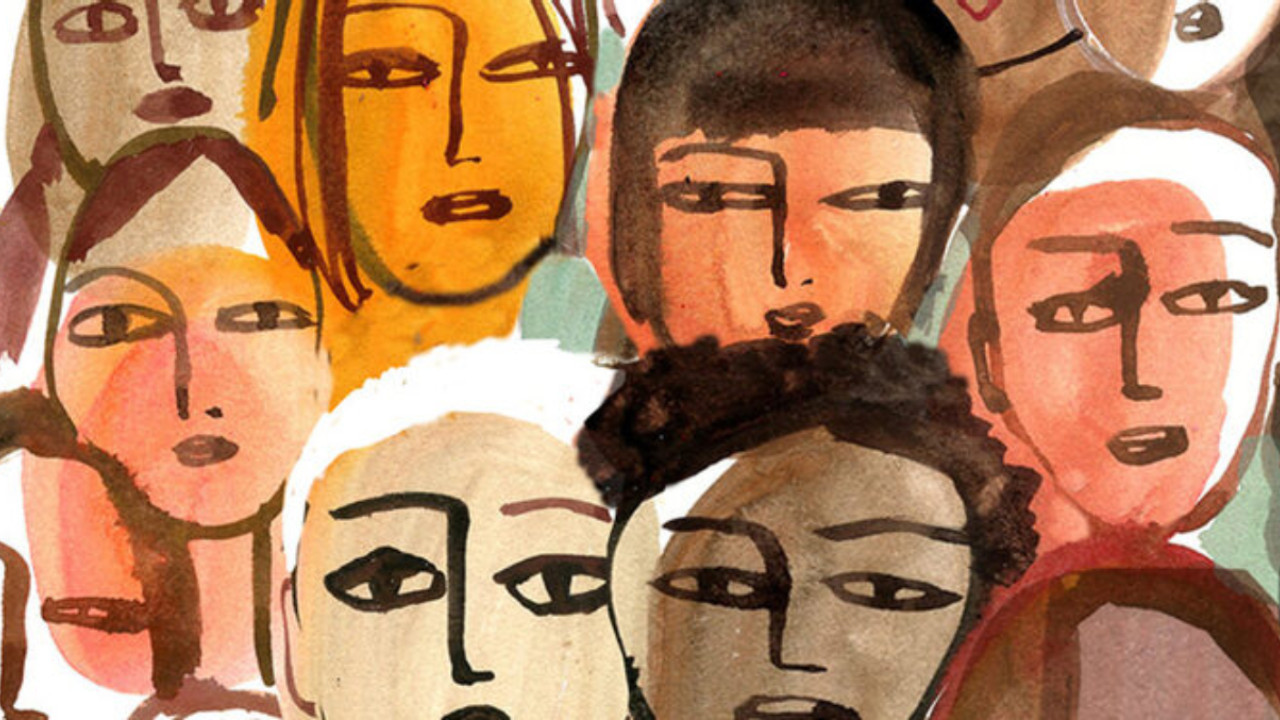Women’s rights advocates highlight 2024 challenges, share 2025 hopes for Turkey
Women’s rights groups in Turkey evaluated 2024 for women in Turkey. Femicides and violence against women persisted in 2024, fueled by impunity and regressive policies. They called for gender equality, legal reforms, and justice for victims while expressing hope for stronger activism in 2025.
Didem Mercan / Gazete Duvar
The year 2024 concluded with unresolved debates, among which women's rights stood out as a major focus of activism for Turkey. The record of violence against women, including femicides, remained grim throughout the year.
According to the We Will Stop Femicides Platform, 365 femicides were recorded in the first 11 months of 2024. Monument Counter data showed that in previous years, femicide numbers were 418 in 2020, 433 in 2021, 409 in 2022, and 415 in 2023. KCDP data indicated at least 300 women were killed in 2020, 280 in 2021, 334 in 2022, and 315 in 2023. Hundreds of women’s deaths were classified as “suspicious.”
In discussion with Gazete Duvar, women’s organizations evaluated Turkey’s record on women’s rights in 2024 and shared their expectations for 2025.
'Impunity dominated in 2024'
Birsen Baş Topaloğlu, head of the Women’s Center at the Istanbul Bar Association, highlighted that perceptions of impunity became more entrenched in 2024. She also noted a lack of progress in achieving gender equality in politics.
Topaloğlu deemed the year as one of “struggle against violence toward women and the erosion of women’s rights.”
“We witnessed that violence against women did not stop and continued to escalate,” she stated. According to Monument Counter, 429 women were killed in 2024, though these figures only represent media-reported cases, and the actual numbers are higher.
“We observed heinous femicides, such as women being beheaded and thrown from city walls or shot by former spouses in public view. We encountered the case of Narin, where an entire village remained silent to protect the perpetrators.”
She continued, “The perception of impunity deepened in 2024. Women faced sexual and physical assaults in public spaces, and ineffective enforcement of protective orders left many women at risk of death.”
Topaloğlu also emphasized the rise in women’s poverty and its adverse effects on combating violence. She added that the Istanbul Bar Association’s Legal Aid Bureau received 7,310 applications for legal aid, of which 6,814 were from women. Additionally, 1,246 women applied for protection to safeguard themselves from violence.
Legal gains under threat
Topaloğlu pointed out that 2024 also witnessed efforts to reclaim women’s legal rights. She said that despite the Constitutional Court annulment of the law requiring married women to adopt their husband’s surname, which took effect on Jan. 28, 2024, the ruling remained unenforced.
“Marriages continue to be registered as if the law is still valid, forcing women to litigate for their rights. Proposed legal amendments to reinstate the annulled provision were only withdrawn after resistance from women’s organizations and bar associations. However, no positive legislative steps were taken, and unlawful practices persist,” she stated.
'We will overcome misogyny'
Fidan Ataselim, general secretary of the We Will Stop Femicides Platform, highlighted the rise in femicides in 2024 but also the hope instilled by women’s activism.
“2024 saw a peak in femicides, the highest since 2010. Yet, amid this grim reality, the rise of young feminist activists offered hope. Their organizing efforts shone like stars in the darkness.”
While political power continued to confine women within family structures, leading to increased violence, young feminists have been inspiring with their determination to dismantle misogyny and build a freer future.
“I believe 2025 will witness the end of impunity for crimes under Law No. 6284, and equality will become the norm for all,” Ataselim concluded.
Challenges ahead
Müjde Tozbey, a lawyer from the Children and Women First Association, acknowledged the difficulties of 2025 but remained optimistic.
“Economic crises and regressive policies may intensify pressures on women, but solidarity and organization will overcome these challenges. 2025 will be a year of greater unity among women, stronger advocacy for rights, and progress toward a world of equality, freedom, and justice. Everyone must support women’s demands, as their struggle benefits children, society, and the future,” she said.
(English version by Ayşenaz Toptaş)

 October 2024 marks highest number of femicides in Turkey in 14 yearsWomen
October 2024 marks highest number of femicides in Turkey in 14 yearsWomen From a tough year to an even tougher one for womenWorld
From a tough year to an even tougher one for womenWorld Impunity for violence against women in Turkey: Pepper spray sales peakWomen
Impunity for violence against women in Turkey: Pepper spray sales peakWomen